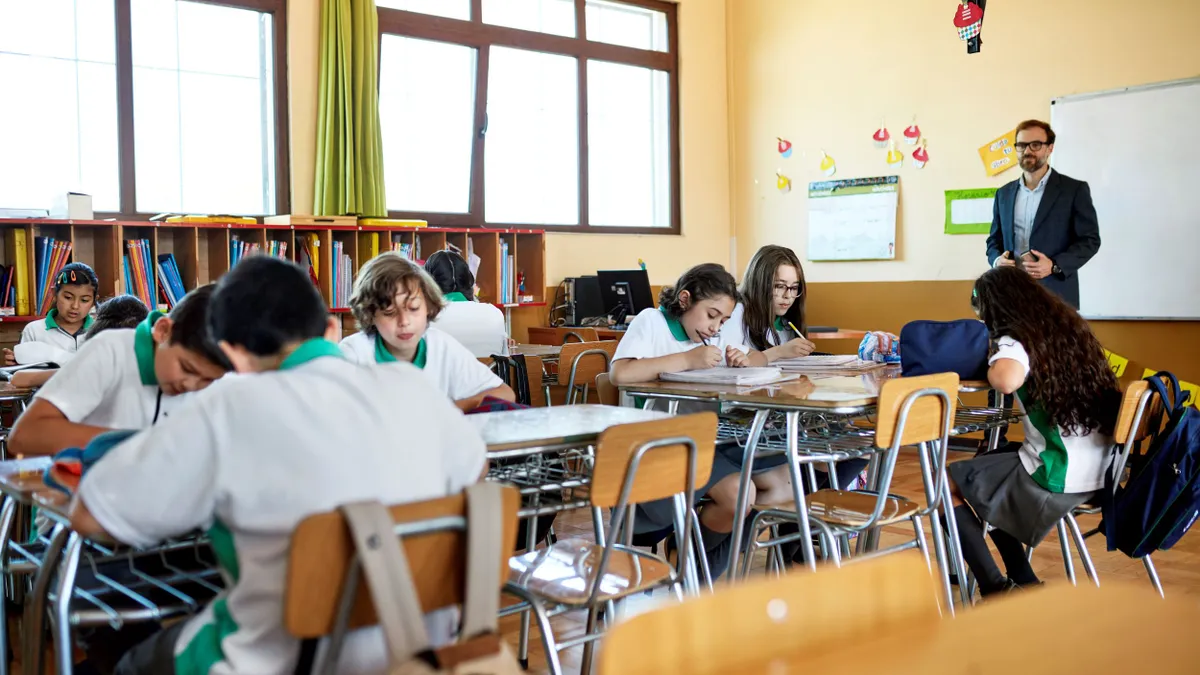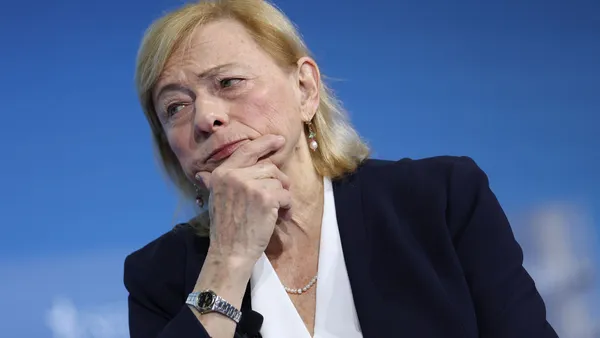Dive Brief:
- Alabama and Louisiana are gearing up to launch new education savings accounts programs later this year, as school choice programs continue to proliferate nationwide.
- On Thursday, Alabama Gov. Kay Ivey announced applications are open for the state’s new ESA program. Selected families are eligible for up to $7,000 per student beginning in July to help cover private school tuition, tutoring, educational therapies and other state-approved education expenses.
- Pending legislative appropriations, Louisiana aims to open applications for its ESA program by March 1, according to the Louisiana Department of Education. It’s expected that selected families could start using the funds — ranging from $5,243 to $15,253 per student — during the 2025-26 school year.
Insight:
Between the 2022-23 and 2023-24 school years, the number of students nationwide using ESAs more than doubled — from 133,171 to 328,741, according to pro-school choice advocacy organization EdChoice.
ESAs allow parents to use a “publicly funded, government-authorized savings account with restricted, but multiple uses for educational purposes,” EdChoice said on its website. Including Alabama and Louisiana, 17 states now have ESA programs on the books.
Enacted in March 2024, Alabama’s Creating Hope and Opportunity for Our Students' Education Act — known as the CHOOSE Act — will offer the first 500 ESAs to students with disabilities. After that, priority will go to students who are both dependents of active-duty service members and enrolled in a school that has received a D or F from the state’s report card.
Any remaining ESAs will then be awarded to students based on their family’s adjusted income, which cannot exceed 300% of the federal poverty level. Within the first day, the state received over 2,800 applications representing ESA requests for 4,800 students, the Alabama Daily News reported.
In a Thursday statement, Ivey said the program will help students get "the highest-quality education possible by giving greater flexibility to families to pursue educational options that meet their individual needs.”
Louisiana’s new ESA program — Louisiana Giving All True Opportunity to Rise Scholarship Program, or LA GATOR — also stems from a 2024 state law. Funding for student accounts will depend on annual state appropriations and can be used for private school tuition and fees, tutoring, educational therapies, textbooks and curricula, dual enrollment courses, and uniforms.
LA GATOR will prioritize ESAs to students participating in the state’s former private school scholarship program, students identified as having a disability under the federal Individuals with Disabilities Education Act, and students from a family whose income is at or below 250% of the federal poverty level.
ESAs represent just part of the overall growth in private school choice programs in recent years, having reached over 1 million students nationwide in 2024, EdChoice found. Still, that’s just a fraction of the 22 million students who are eligible for such programs.
As of May, private school choice bills had been introduced or prefiled last year in at least 34 states, most of which were aimed to expand existing programs, according to FutureEd, an education research nonprofit at Georgetown University.
As President-elect Donald Trump prepares to return to the White House, more federal support is expected for school choice. During his 2024 campaign, Trump promised to support universal school choice, broaden 529 education savings accounts and allow homeschooled students equal access to opportunities like athletic programs, clubs, after-school activities and educational trips.
Opponents of school choice programs, however, argue that such initiatives drain resources and funding from public schools. They also say private schools are not held accountable for student outcomes.
Indeed, before the LA GATOR program became law, the Louisiana Federation of Teachers voiced concerns about ESAs.
“If these bills pass, teachers and staff would actually receive less income next year, and in the future, than they do currently,” the union wrote on its website. “Voucher bills take away resources from teachers, staff, and students, and would be creating an entirely new cost to taxpayers with little to no oversight and accountability.”













